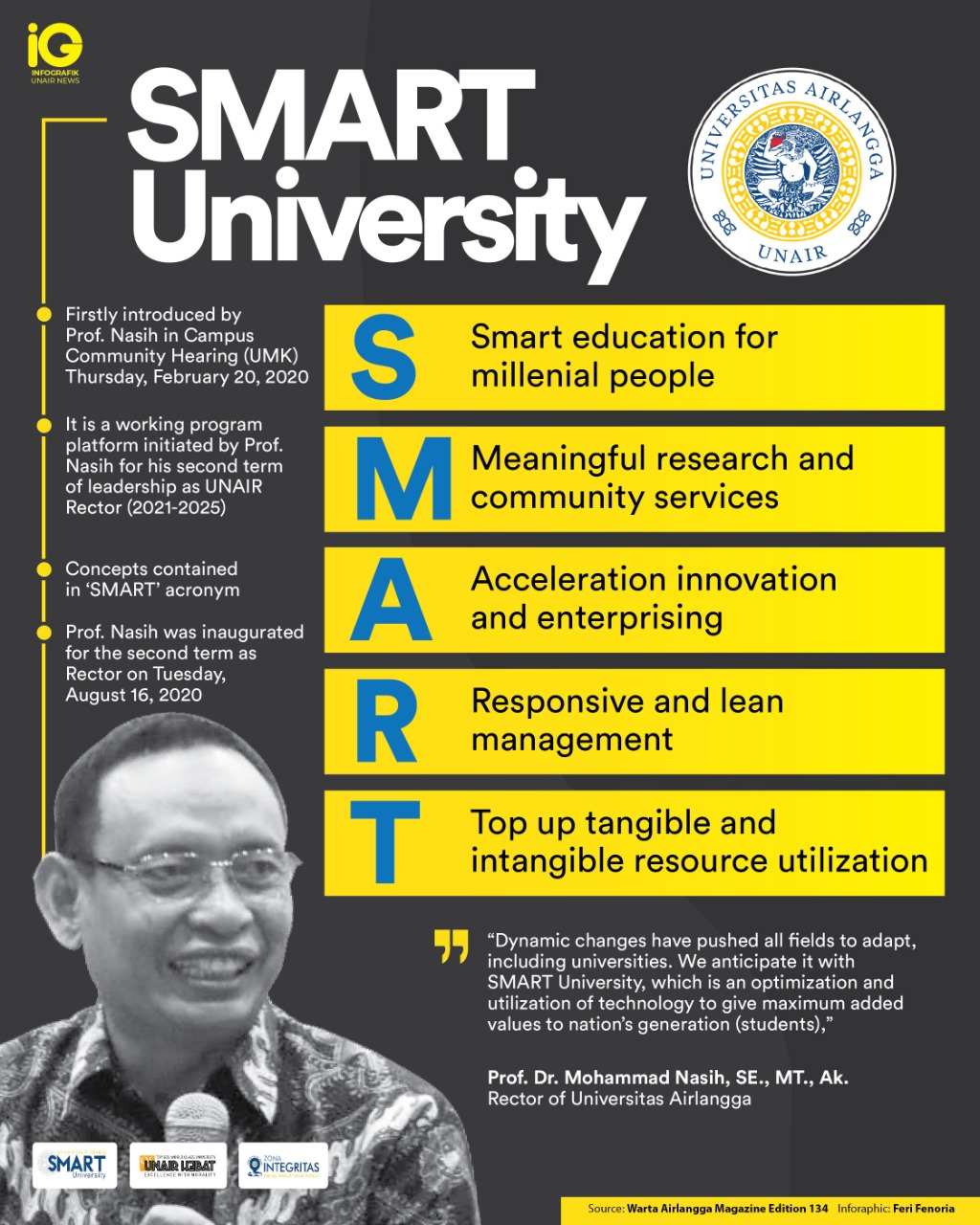UNAIR NEWS – “SMART University” platform was initiated by Prof. Nasih, in his second term of leadership. Prof. Nasih was inaugurated as rector for the 2020-2025 period by Prof. Hatta Ali (Board of Trustees Chairman) on Tuesday, June 16, 2020.
The operation of the program takes the form in the acronym of SMART which consists of five key concepts, Smart education for millennial people, Meaningful research and community service , Acceleration innovation and entrepreneurship, Responsive and lean management, and Top up tangible and intangible resource utilization.
The first concept is Smart Education for Millennial People. It
indicates an agile (adaptive) development of education and teaching, especially aimed at millennials in facing technological developments. Its implementation is in the form of optimizing the use of the latest technology for the needs at campus.
In this case, education and teaching will change slightly. The curriculum will be reorganized to make it more relevant and flexible according to future challenges. One of them is reinforcing the Independent Campus program. Furthermore, the knowledge transfer model will be enriched. Vocational programs are strengthened. An entrepreneurial center, business incubator and teaching industry will also be developed.
Then, Meaningful Research and Community Service emphasize development of research and community service based on technological science and humanities that brings significant impacts to SDGs (Sustainable Development Goals). It is conducted through meaningful research and community service. The climate and capacity of research is improved through research groups, research centers, and collaboration. Interdisciplinary research will also be encouraged through research mandate programs and research groups.
“There is no research conducted without providing benefits. Research and community
development must be encouraged to give meaning and improve
quality, “said Prof. Nasih.
The next concept, Accelerating Innovation and Enterprising, refers to the development of an innovation ecosystem for an innovation-based economy. In this case, it is to accelerate innovation that is not only physical, but also social innovation. One of the things that will be done is facilitating patents, HAKI (Intellectual Property Rights), and brands.
Then, the concept of Responsive and Lean Management shows that university management is based on the principles of accountability, transparency, responsibility, independence and fairness. It requires all academicians to be responsive to various conditions and circumstances. All of this is realized in order to ensure the implementation of quality, effective and efficient Tridharma of Higher Education.
“All work units, faculties, and university management must be responsive to various situations and conditions. As well as being accountability centers according to their respective functions, “he said.
Finally, Top Up Tangible and Intangible Resource Utilization refers to optimizing assets and resources for the benefit Tridharma implementation. All potentials of UNAIR are encouraged to support the pillars of education and research. (*)
Author: Feri Fenoria
Check out also





